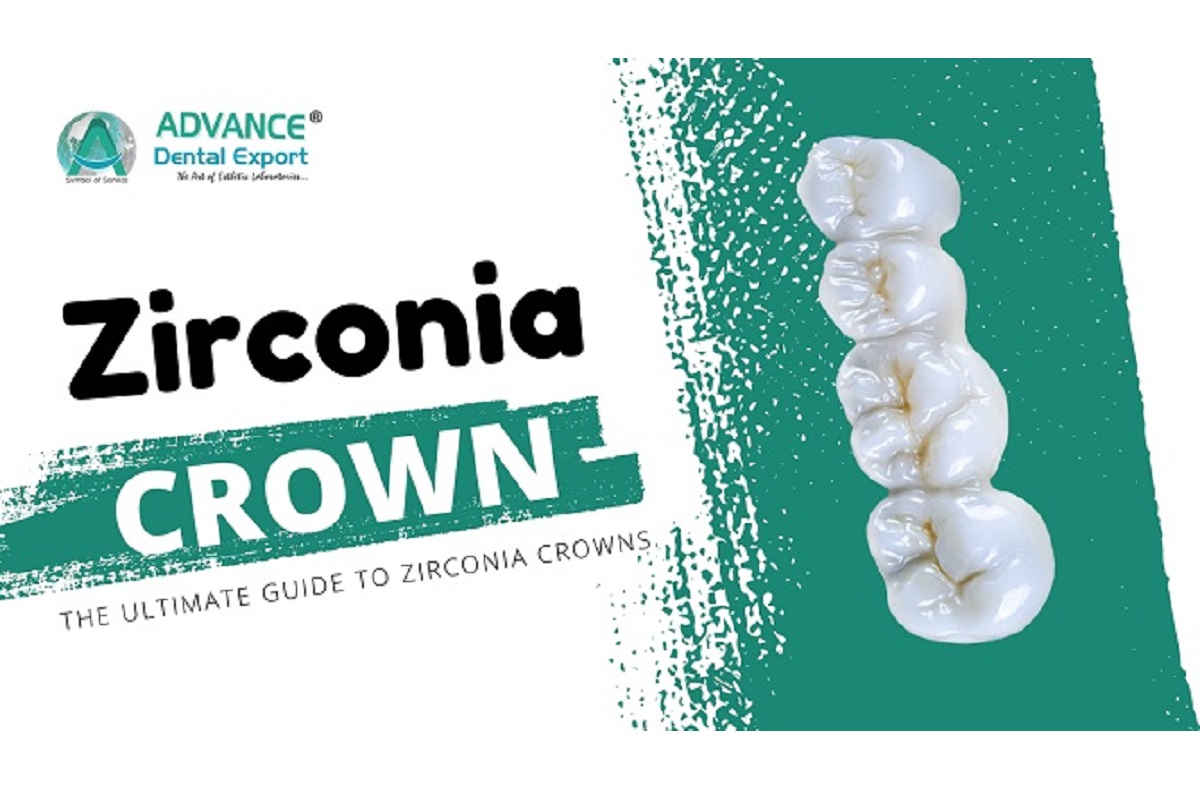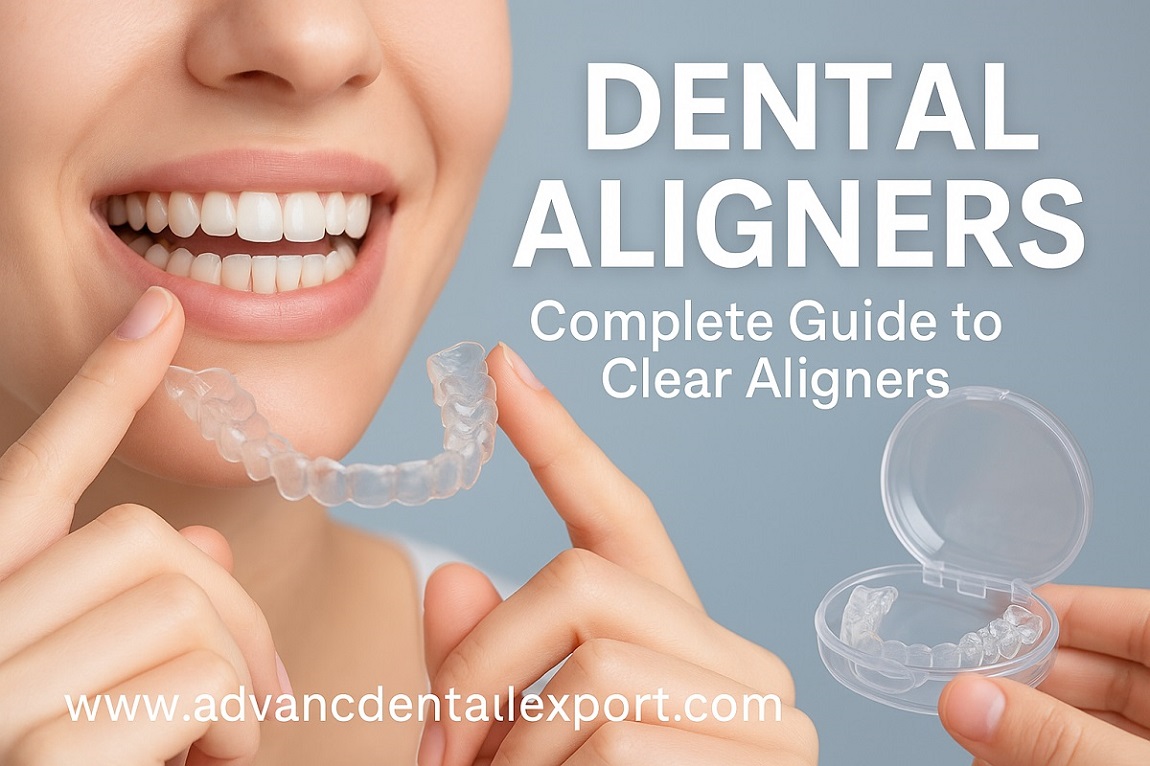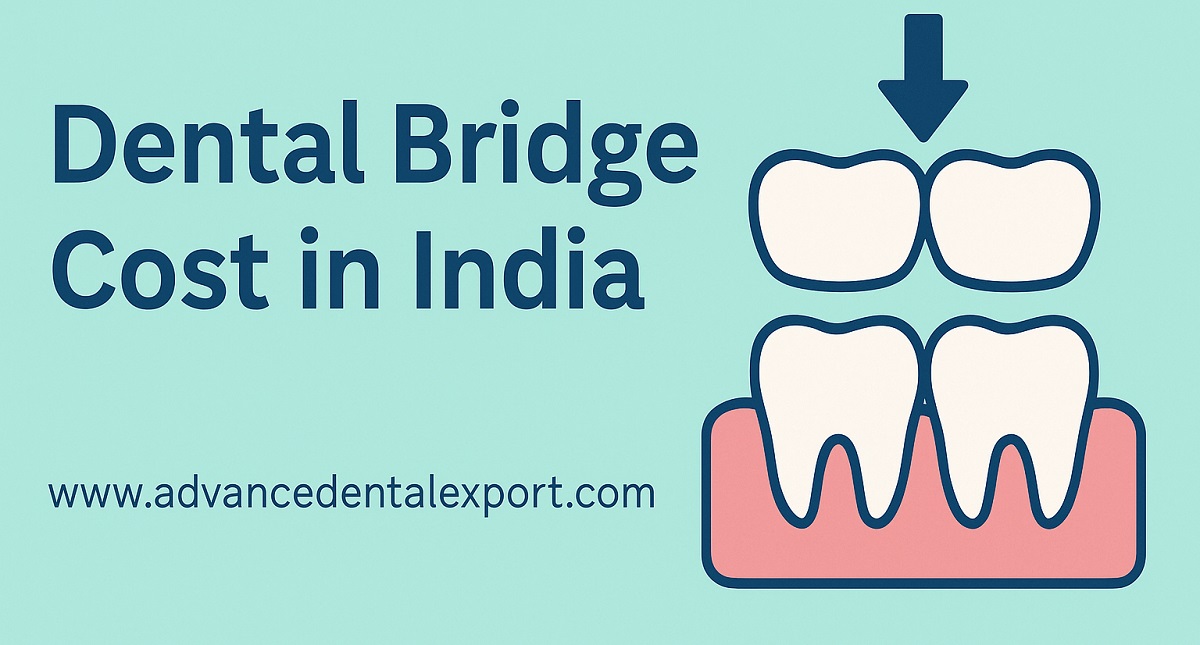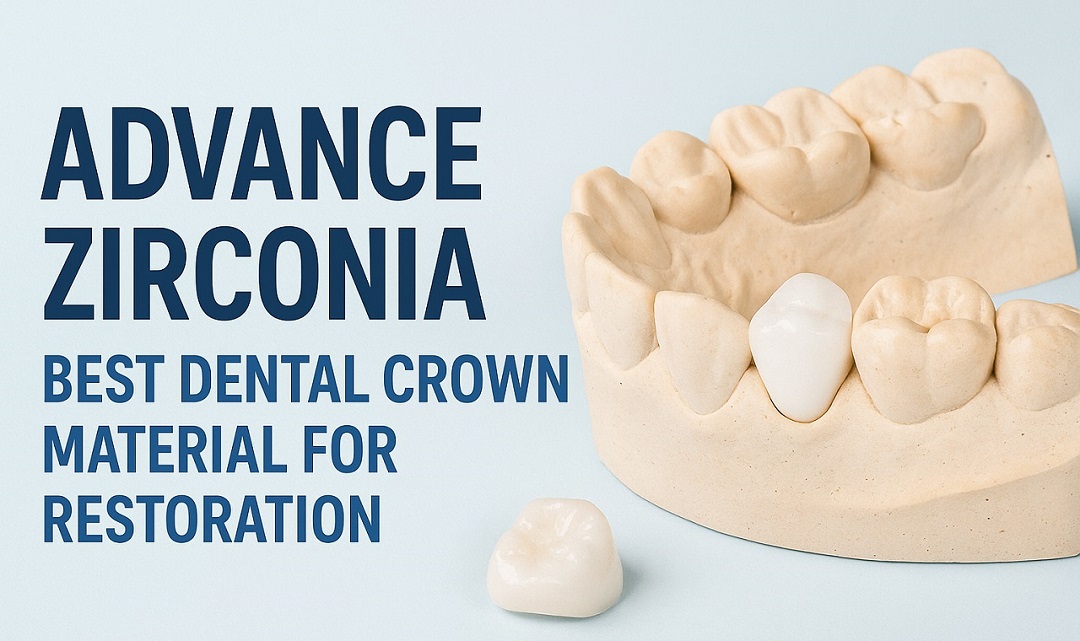All About Ceramic Crown for Teeth: Benefits & Cost in India
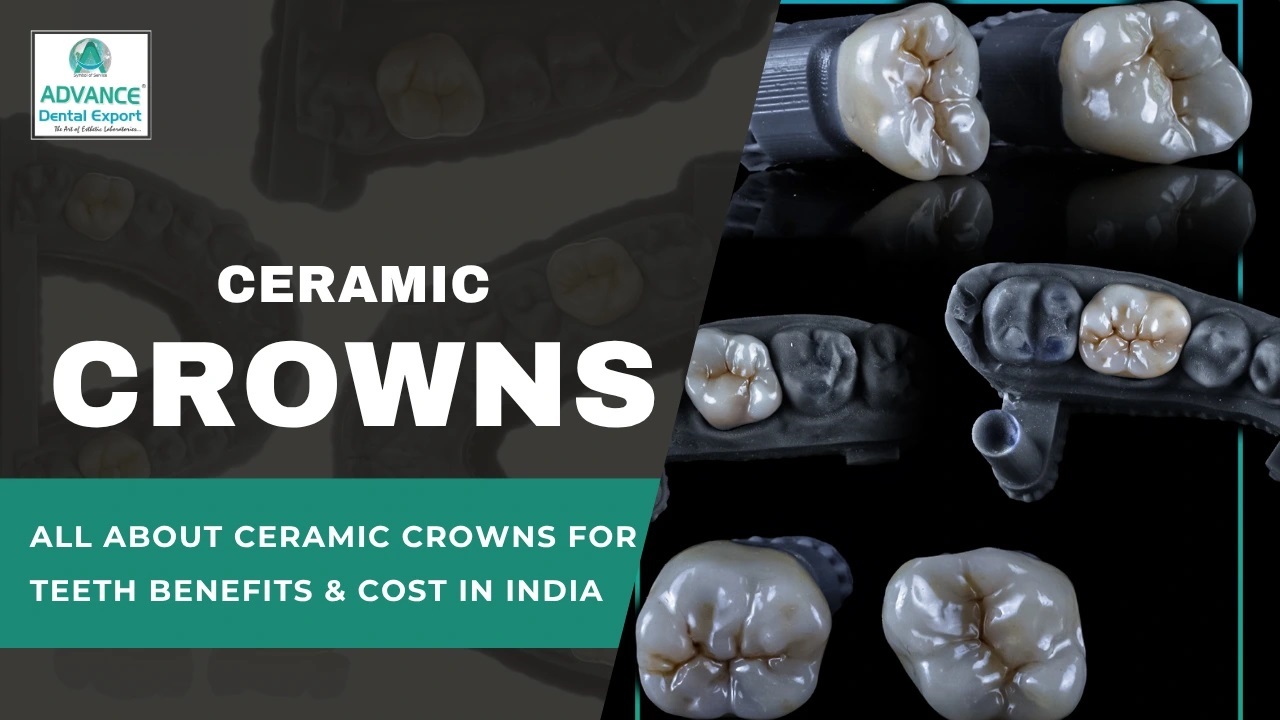
Strong 8k brings an ultra-HD IPTV experience to your living room and your pocket.
Dental crowns, which we refer to as tooth caps in common language, are extremely important to restore damaged teeth and bring back their function. Of the different types of tooth crowns, ceramic crowns have become the most popular and choice option today, especially due to their excellent aesthetic properties.
In this comprehensive guide, we will discuss dental ceramic crowns deeply. According to our experienced dental professionals, these crowns provide live transparency and excellent biocompatibility, which makes them particularly ideal for the front teeth. Let's know in detail what a ceramic crown is, its benefits, different types, and its average value in India.
What is a Dental Ceramic Crown?
A dental ceramic crown is a custom-made, tooth-shaped cap that is completely made of ceramic material. The term "ceramic" here refers to a variety of ceramic materials, including porcelain, e-max, and zirconia. Being completely made of ceramic material without a metal core, it is also known as an all-ceramic crown or all-porcelain crown (All-Porcelain Crown).
This crown protects it by completely covering damaged, rotten, broken, or defective teeth in shape. Its main purpose is to restore the original shape, size, strength, and natural appearance of the tooth. The specialty of ceramic crowns is that they reflect the light and have transparency as a natural tooth, making them easily blend with other teeth and giving a wonderful, natural smile.
Why Choose a Dental Ceramic Crown?
There are many important reasons for dental ceramic crowns to be a popular choice for tooth restoration. Here is a detailed description of its main benefits:
Excellent aesthetics
The biggest benefit of ceramic crowns is their wonderful appearance.
Natural Transparency: Ceramic material allows light to pass and reflect the same as the enamel of natural teeth. This gives the crown a living and real look like a natural tooth. Metal-based crowns are not found in a grey-lining ceramic crown.
Personal Color Matching: These crowns can be perfectly matched with the color and shade of the natural tooth surrounding the patient, allowing them to easily blend with a smile and remain almost invisible.
Metal-free and biocompatible (metal-free and biocompatible)
No metal allergies: ceramic crowns are completely metal-free, making them an excellent alternative for patients with sensitivity to metal or allergies.
Acceptance by the body: Ceramic contents are very well consistent with the body, which reduces the risk of inflammation, allergic reactions, or other adverse effects in the gum. There is no black line on the edges of the gum, which is a common problem with PFM (porcelain-fused-to-metal) crowns.
Restoring the tooth's Function of tooth
Full efficiency: The strength and efficiency of the weakened teeth after decay, damage, or root canal can be completely restored by the crown. This can help the patient comfortably chew, bite, and speak.
Proper bite (Bite): The crown is custom-designed in the original shape and size of the tooth, which ensures the correct bite (occlusion) and helps to evenly distribute the chewing pressure.
Prevent further damage
Full Security: Once the teeth are weak or cracked, they become more susceptible to further damage. A ceramic crown offers a strong protection shield, which reduces the likelihood of a toothpick, more decay, or fracture.
Durability
Modern ceramic materials, especially lithium disilicate (e-max) and zirconia, are extremely strong and durable. With proper care and maintenance, ceramic crowns can last for many years, making them an excellent investment for the long-term restoration of teeth.
Types of Ceramic Crowns
When we call "ceramic crowns", it covers a variety of materials, each has its distinctive properties:
Porcelain Crowns
Specialty: These are traditional ceramic crowns that are mainly made of porcelain. They are extremely aesthetic and provide excellent transparency, such as natural teeth.
Use: Ideal for front teeth where aesthetics is classy.
Limit: It is less strong than other modern ceramics (such as e-Max or Zirconia) and is more likely to be fractured under heavy chewing pressure.
Lithium Disilicate Crowns (Emax)
Specialty: Emax is the brand name of lithium-dislike glass-ceramic material. It is known for its excellent strength (about 500 MPa) and a combination of wonderful aesthetics. E-Max Crowns are translucent, which allows them to mix very well with natural teeth.
Use: Suitable for both front and rear teeth where there is moderate to heavy pressure. It is also used for veneers, inlays, onlays, and a small bridge.
Benefits: Excellent balance of beauty, strength, and biocompatibility.
Zirconia Crowns
Specialty: Zirconia is an extremely strong ceramic material made of zirconium dioxide. It is known for its exceptional power (about 900-1200 MPa) and durability. Modern Zirconia Crowns are available in various transparency levels, including high-transparent zirconia (high-translucency zirconia), which is also suitable for aesthetic areas.
Use: Ideal for rear teeth (molars) facing heavy chewing pressure. It is also widely used for bridges and implantsHighly transparent zirconia is now used for the front teeth.
Benefits: Extraordinary strength, durability, resistance to chipping, and good biocompatibility.
Average Price of Ceramic Crowns in India
The cost of dental ceramic crowns in India can vary depending on various factors. These factors include the location of the clinic (city/rural area), dentist experience and reputation, a certain type of ceramic material used and brand, laboratory quality, and the patient's specific teeth requirements.
Here is a transparent and reliable observation of the general cost range for different types of ceramic crowns in India. These figures are based on our clinical experience and current market rates:
Porcelain Crowns: ₹ 8,000 - ₹ 15,000 per crown
These are traditional ceramic crowns that are aesthetic, but their strength can be limited.
All-ceramic/porcelain crowns (including e-max): ₹ 8,000-₹ 30,000 per crown
Premium ceramics such as lithium dislike (E-Max) can be more expensive due to their high transparency and seamless blend with natural teeth. Their cost reflects their quality and aesthetic excellence.
Zirconia Crowns: ₹ 10,000 - ₹ 25,000 per Crown
Zirconia crowns are known for their extraordinary strength, durability, and good aesthetic features. The price of the brand depends on the type of zirconia used (eg, monolithic, layered) and lab technology.
The price can also go up to ₹ 30,000 in clinics using some premium brands and advanced techniques.
Important Note: The above prices are only the average category, and the actual costs can vary depending on individual cases and clinical factors. It is always best to discuss the full cost estimate with your dentist before starting treatment.
How Long Do Ceramic Crowns Last?
The life expectancy of a ceramic crown depends on many factors, including the type of ceramic material used, the oral hygiene of the patient, chewing habits, and regular dental examinations.
Porcelain Crowns: Can usually survive 7 to 10 years.
E-Max Crowns: Can last about 10 to 15 years or more, especially with proper care.
Zirconia Crowns: Can last for 15 to 20 years or more, as their extraordinary strength and resistance to depreciation make them extremely durable.
Regular dental examination and good oral hygiene play an important role in increasing the life expectancy of your ceramic crown.
Conclusion
As we have seen, dental ceramic crowns are not only limited to covering damaged teeth, but it is a comprehensive and highly effective restoration solution for the health and efficiency of the tooth. As dental professionals, we can confirm that the crown reinforces the weakened teeth, efficiently fills the broken teeth, improves aesthetic defects, and plays an important role in maintaining your natural tooth structure. Since different types of materials and their distinctive characteristics are available, it is possible to choose the best crowns as per each patient's requirement, which gives excellent long-term results.
Note: IndiBlogHub features both user-submitted and editorial content. We do not verify third-party contributions. Read our Disclaimer and Privacy Policyfor details.



